BGS’s National Geoscience Data Centre releases over 8000 technical reports
The technical reports, covering the full spectrum of BGS activities and subjects, were produced between 1950 and 2000.
05/06/2024 By BGS Press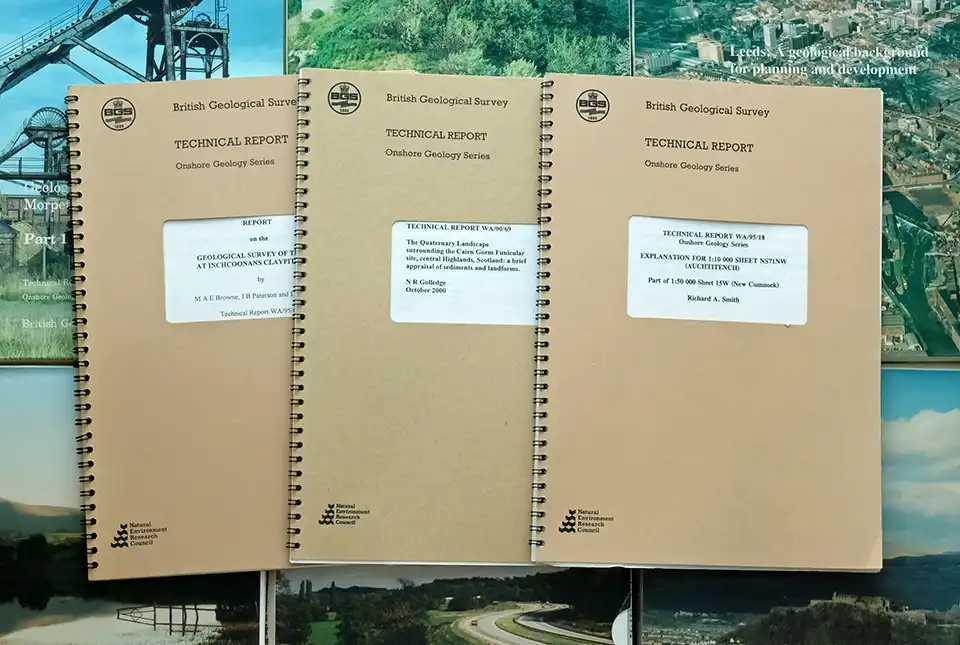
Over 8000 technical reports have been released by BGS’s National Geoscience Data Centre (NGDC), comprising internal unpublished works created outside the formal publishing and distribution system. They pre-date the current report series and, for any given title, only a few copies were produced for deposit in BGS libraries or offices, making them traditionally hard to find and access. They cover the full spectrum of BGS activities and subjects, including:
- onshore geology, including the important ‘geological notes and local details’ (essentially, sheet descriptions for 1:10 560/1:10 000 maps)
- marine geology
- minerology and petrology
- mineral resources
- global seismology
- geomagnetism
The 16 series and just under 100 subseries can now be navigated via the publication viewer; more detailed notes on this complex set of reports are available on Earthwise. A search facility for authors and titles is also available in the application. The file sizes of technical reports are much smaller than formal BGS publications, so they have been made available as PDF downloads only.
This first technical report release represents BGS’s non-confidential reports. A second project is underway to review confidential reports with a view to a future release.
The release of these reports demonstrates BGS’s continued commitment to providing open access to geoscience data of value to the nation. These reports, created by BGS during the latter half of the past century and now all in digital form, contain a wealth of geological information and knowledge that is now easier to access and utilise.
Alison Steven, data operations and governance manager (NGDC).
Relative topics
Related news

AI and Earth observation: BGS visits the European Space Agency
02/07/2025
The newest artificial intelligence for earth science: how ESA and NASA are using AI to understand our planet.
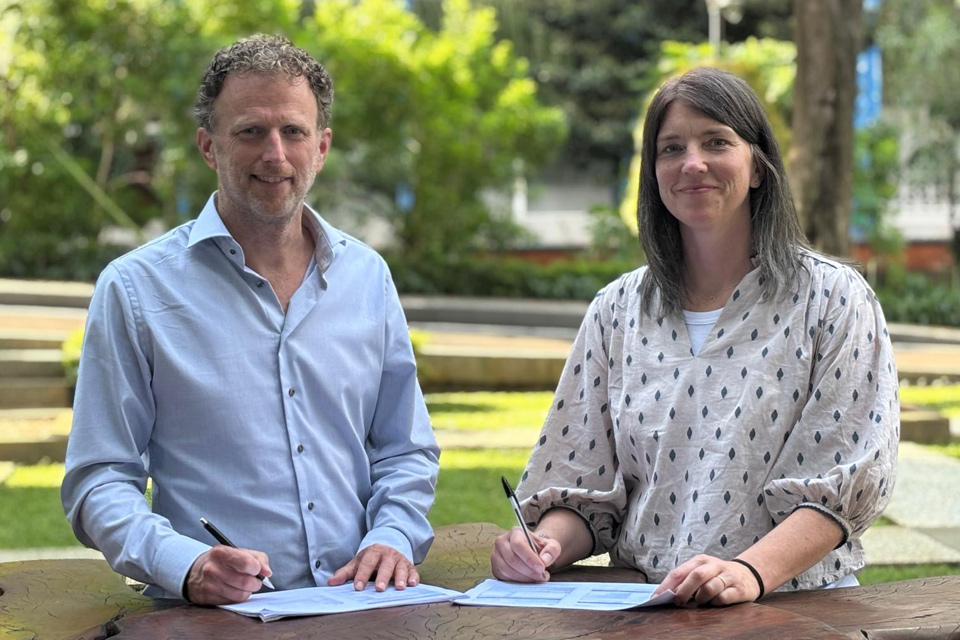
New collaboration aims to improve availability of real-time hazard impact data
19/06/2025
BGS has signed a memorandum of understanding with FloodTags to collaborate on the use of large language models to improve real-time monitoring of geological hazards and their impacts.
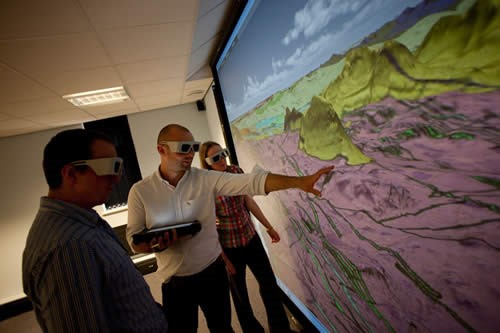
Celebrating 20 years of virtual reality innovation at BGS
08/04/2025
Twenty years after its installation, BGS Visualisation Systems lead Bruce Napier reflects on our cutting-edge virtual reality suite and looks forward to new possibilities.
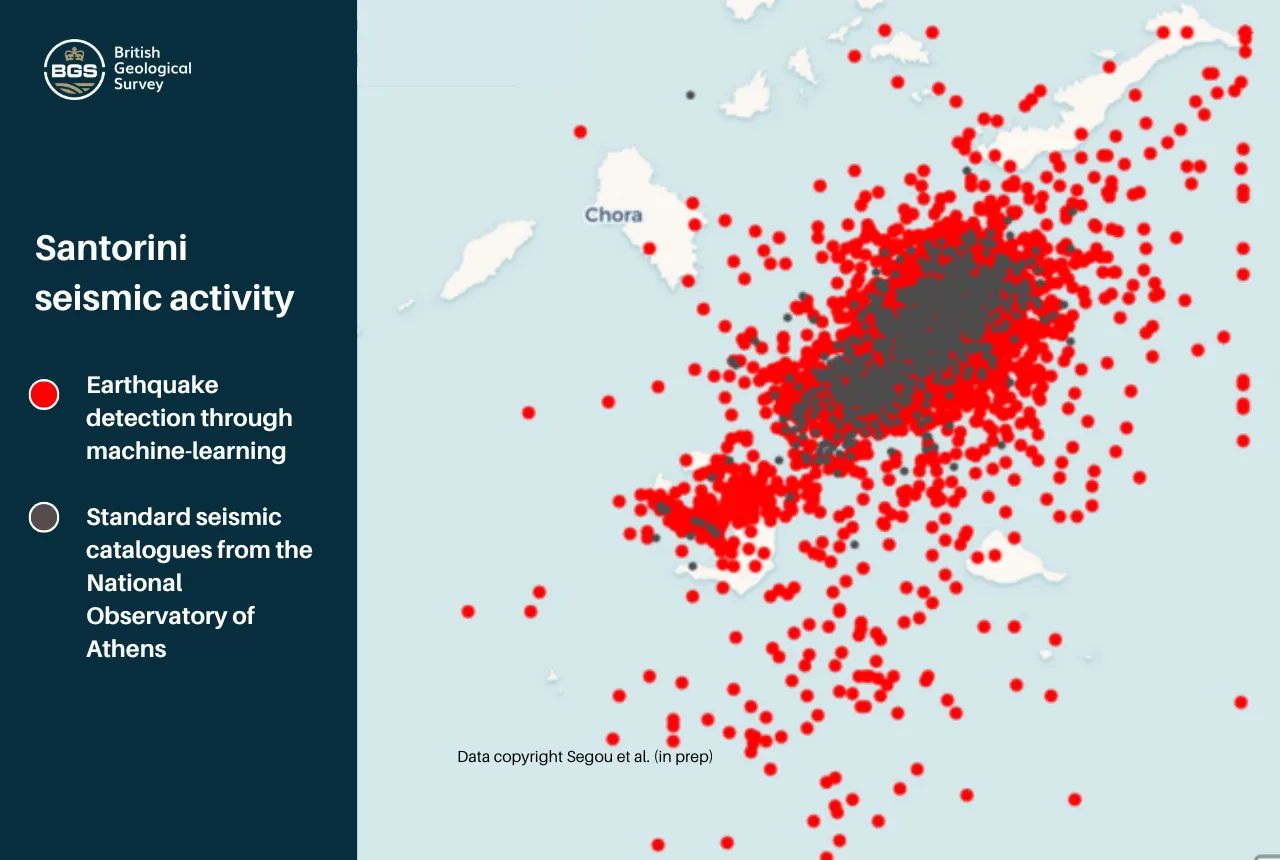
Artificial intelligence is proving a game changer in tracking the Santorini earthquake swarm
07/02/2025
Scientists are harnessing the power of machine learning to help residents and tourists by detecting thousands of seismic events.
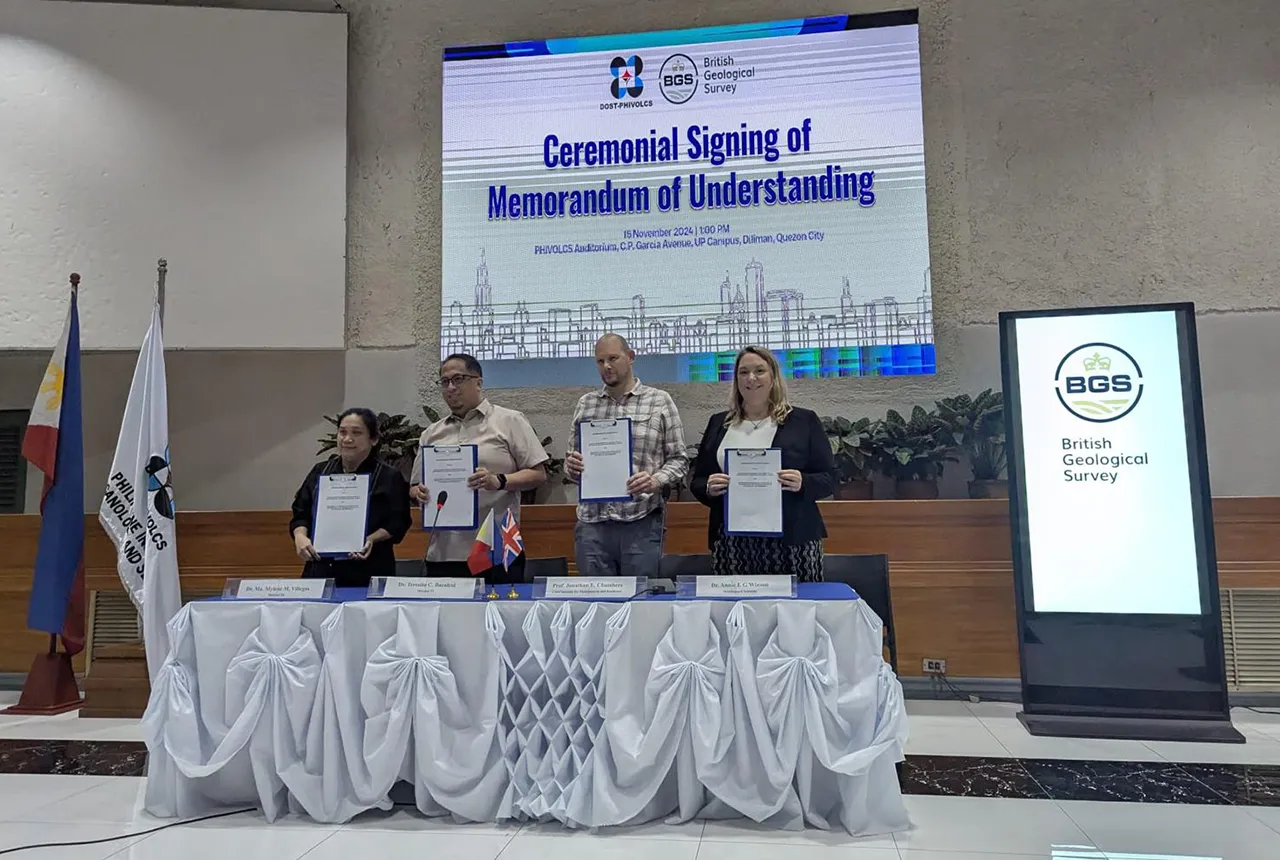
New Memorandum of Understanding paves the way for more collaborative research in the Philippines
21/01/2025
The partnership will focus on research on multi-hazard preparedness within the country.
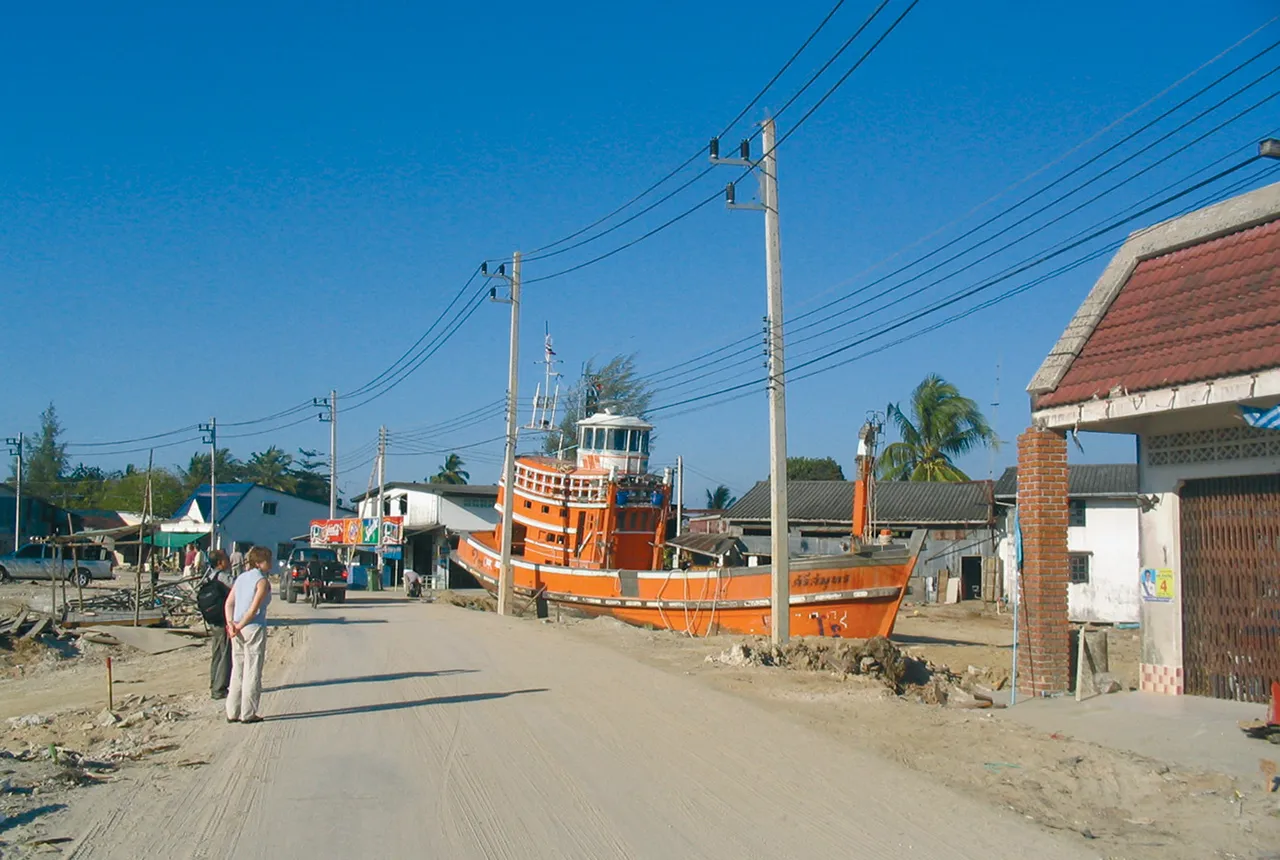
Twenty years on: the Indian Ocean earthquake and tsunami
26/12/2024
Boxing Day 2024 marks 20 years since the Indian Ocean earthquake and tsunami. Prof David Tappin reflects on the disaster and discusses what we have learnt since 2004.

Electromagnetic geophysics in Japan: a conference experience
23/10/2024
Juliane Huebert took in the fascinating sights of Beppu, Japan, while at a geophysics conference that uses electromagnetic fields to look deep into the Earth and beyond.
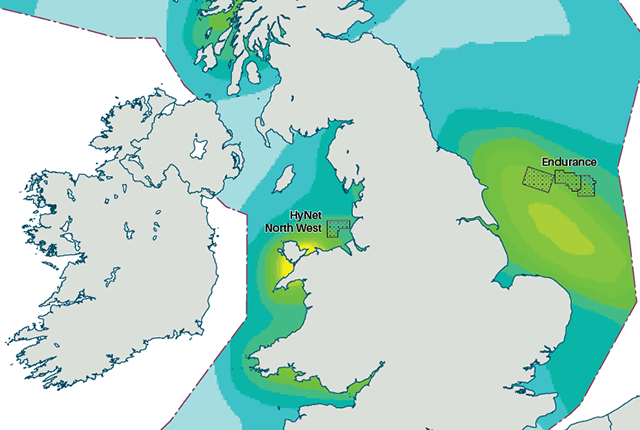
New hazard maps set to help safeguard UK offshore energy industry
12/09/2024
Essential geological model detailing seismic hazard published as the pursuit of new renewable energy infrastructure intensifies.
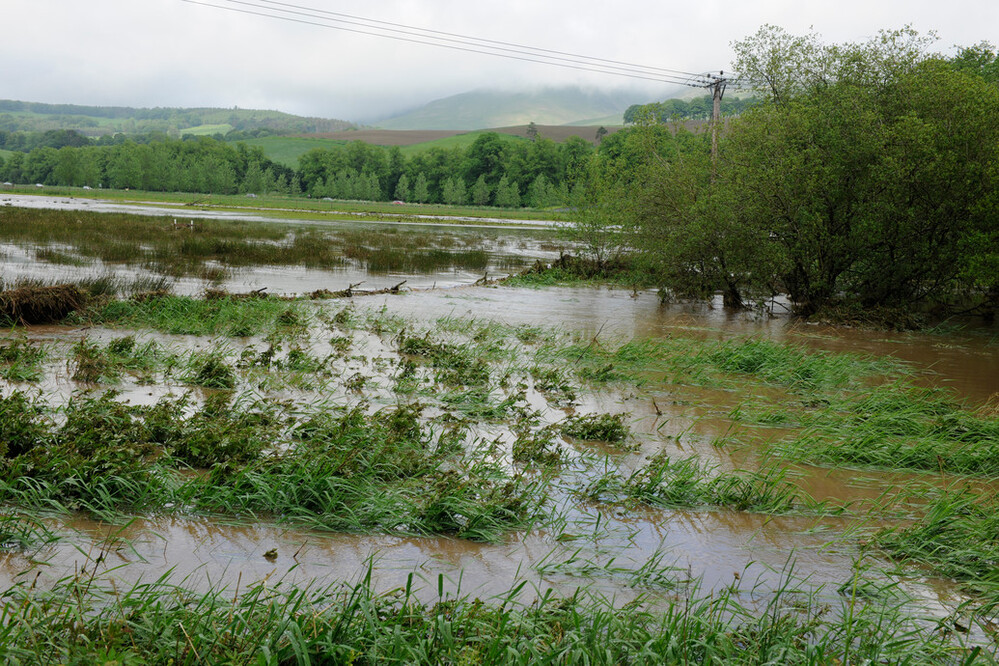
New £38 million project to reduce the impact of floods and droughts
02/09/2024
BGS will take a leading role in efforts to better predict the location and effects of extreme weather events.

New appointments to BGS Science Advisory Committee
29/08/2024
The appointments mark the latest step in the ongoing delivery of BGS’s essential geological expertise.
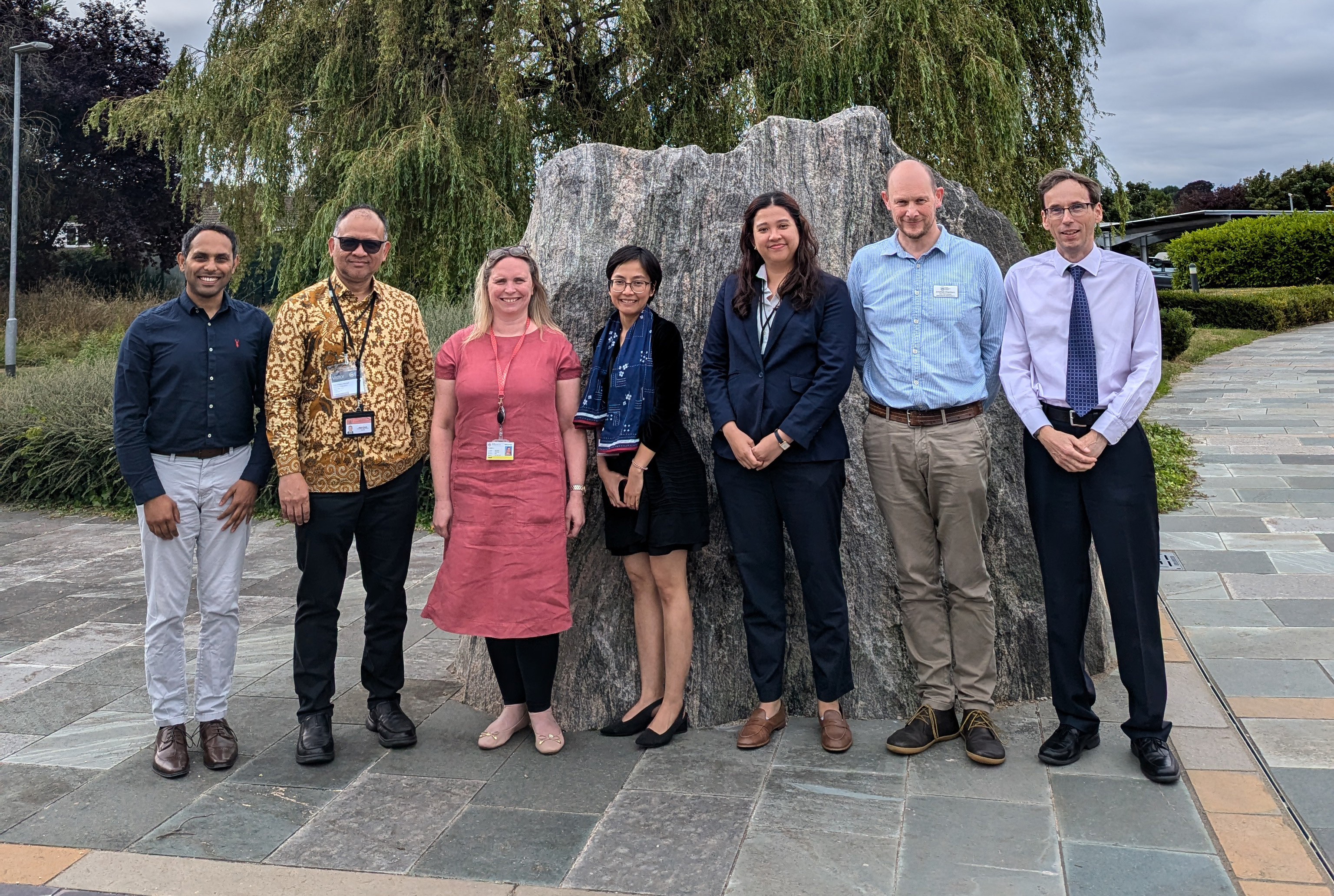
Visit by Indonesian Embassy representatives to BGS
27/08/2024
Strengthening BGS/Indonesia scientific research partnerships to address the complex challenges Indonesia faces from natural hazards and maximising opportunities from mineral resources and geothermal energy.
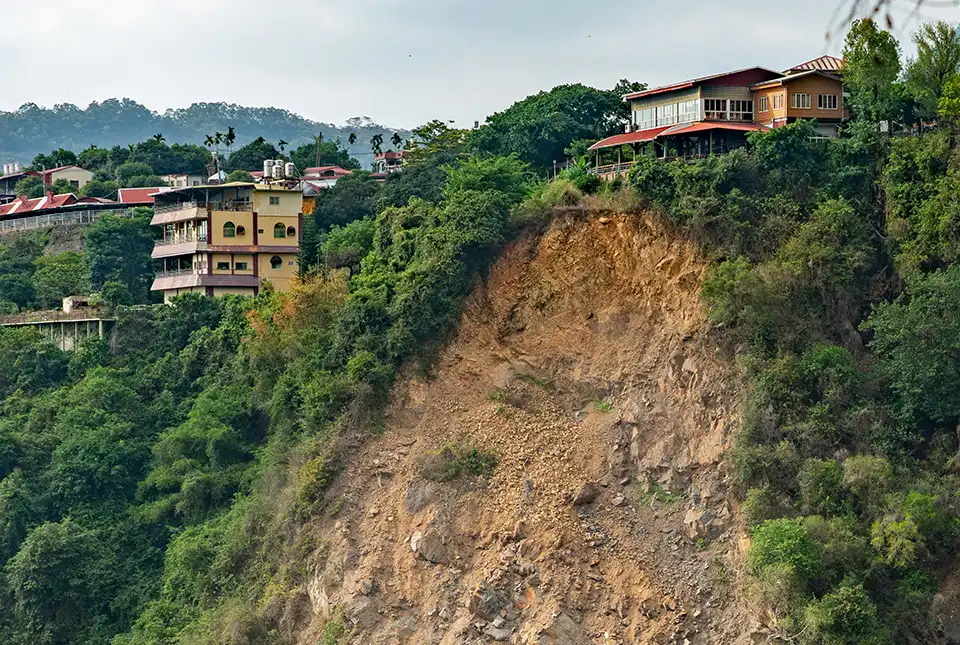
Studying multi-hazards from space
25/07/2024
A new European Space Agency-funded project will study the effect earthquakes have on occurrences of other natural hazards in the long-term.



